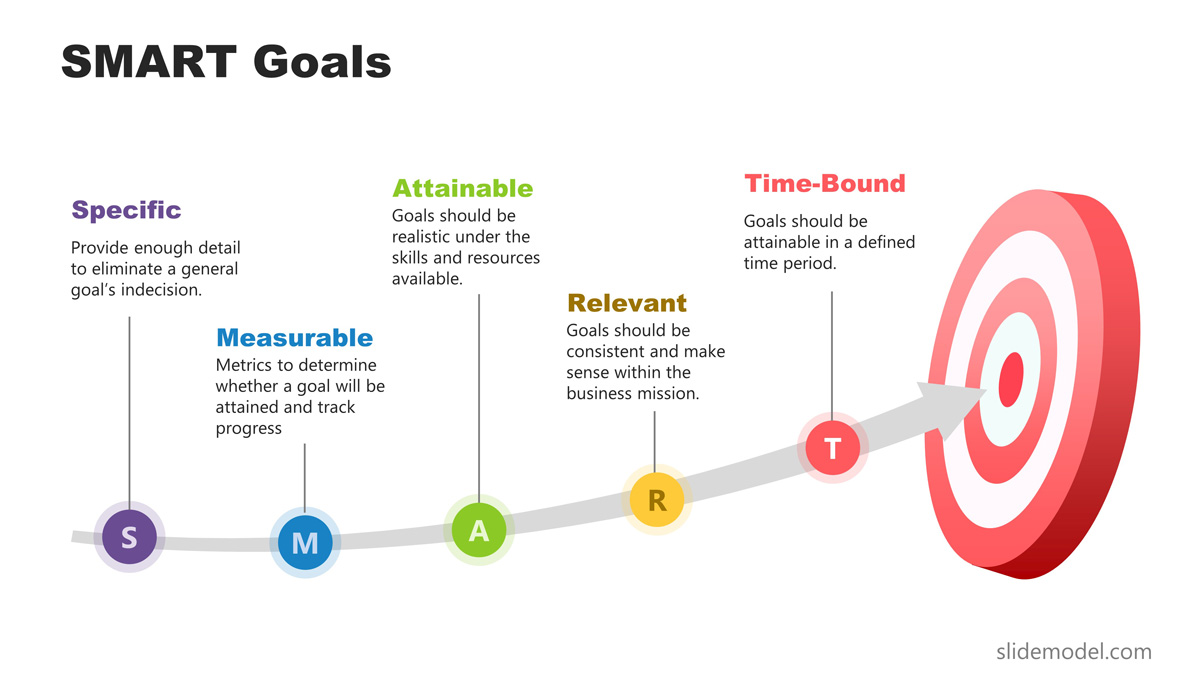Mastering Goal-Setting: Boosting Business Success
Setting goals is a crucial aspect of effective business management. Without clear objectives in place, it can be challenging for a company to stay focused and on track for success. By mastering the art of goal-setting, businesses can boost their chances of achieving their desired outcomes and reaching new heights of success.
One of the most effective strategies for setting goals in a business context is to use the SMART criteria. SMART stands for Specific, Measurable, Achievable, Relevant, and Time-bound. By following these guidelines, businesses can ensure that their goals are well-defined, achievable, and aligned with their overall objectives.
Specific goals are clear and well-defined. Instead of setting a vague goal like increase sales, a specific goal would be increase sales by 20% in the next quarter. This level of specificity helps to provide a clear direction for the business and ensures that everyone is on the same page.
Measurable goals allow businesses to track their progress and determine whether they are on target to achieve their objectives. By setting specific metrics and milestones, businesses can assess their performance and make adjustments as needed to stay on track.

Image Source: slidemodel.com
Achievable goals are realistic and attainable. While it’s important to set ambitious goals, it’s equally important to ensure that they are within reach. Setting goals that are too lofty can lead to frustration and demotivation, while setting goals that are too easy can result in complacency.
Relevant goals are aligned with the overall mission and objectives of the business. It’s essential for goals to support the broader strategic direction of the company and contribute to its long-term success. By setting relevant goals, businesses can ensure that their efforts are focused on the most important priorities.
Time-bound goals have a specific timeframe for completion. By setting deadlines for goals, businesses can create a sense of urgency and ensure that tasks are completed in a timely manner. This helps to prevent procrastination and keeps employees motivated to work towards achieving the goal.
By mastering goal-setting using the SMART criteria, businesses can boost their chances of success in a competitive marketplace. Clear, measurable, achievable, relevant, and time-bound goals provide a roadmap for businesses to follow and help to keep everyone aligned and focused on the same objectives.
In conclusion, setting SMART goals is a practical and effective strategy for boosting business success. By following the guidelines of Specific, Measurable, Achievable, Relevant, and Time-bound, businesses can set clear objectives that are aligned with their overall mission and objectives. This approach helps to keep everyone on track and motivated to work towards achieving their goals, ultimately leading to greater success in the long run.
Achieve Your Dreams: How to Set SMART Goals
Setting goals is an essential part of running a successful business. Without clear objectives in place, it can be easy to lose focus and direction. This is where SMART goals come in. SMART is an acronym that stands for Specific, Measurable, Achievable, Relevant, and Time-bound. By following these principles, you can ensure that your goals are well-defined and attainable. In this article, we will explore how you can use SMART goals to achieve your dreams and drive your business towards success.
First and foremost, it is important to set specific goals. Vague or ambiguous objectives can lead to confusion and lack of motivation. By clearly defining what you want to achieve, you can create a roadmap for success. For example, instead of setting a goal to increase sales, you could set a specific goal to increase sales by 20% in the next quarter. This gives you a clear target to aim for and helps you stay on track.
Next, your goals should be measurable. This means that you should have a way to track your progress and determine whether you are meeting your objectives. Using our previous example, you could measure your progress towards increasing sales by tracking your monthly revenue and comparing it to your target. Measurable goals help you stay accountable and make adjustments as needed to stay on course.
Achievability is another key factor in setting SMART goals. While it is important to challenge yourself, setting unrealistic goals can lead to frustration and burnout. Make sure that your goals are achievable based on your resources, skills, and current circumstances. If your goal is to double your customer base in a month but you only have a small marketing budget and limited staff, you may need to reconsider your target.
Relevance is also crucial when setting goals. Your objectives should align with your overall business strategy and vision. Setting goals that are not relevant to your business can be a waste of time and resources. Make sure that your goals contribute to the growth and success of your company. For example, if your long-term goal is to expand into new markets, setting a goal to increase brand awareness in those markets would be relevant.
Finally, your goals should be time-bound. Setting deadlines helps create a sense of urgency and can prevent procrastination. Without a clear timeframe, it can be easy to put off working towards your goals. By setting a deadline for achieving your objectives, you can stay focused and motivated. For example, you could set a deadline of three months to increase sales by 20%.
In conclusion, setting SMART goals is a practical and effective way to drive your business towards success. By following the principles of Specific, Measurable, Achievable, Relevant, and Time-bound, you can ensure that your goals are well-defined and attainable. Whether your dream is to increase sales, expand your customer base, or launch a new product, setting SMART goals can help you turn your aspirations into reality. So, go ahead and start setting your SMART goals today and watch your business thrive!
Setting SMART Goals: A Guide for Effective Business Management